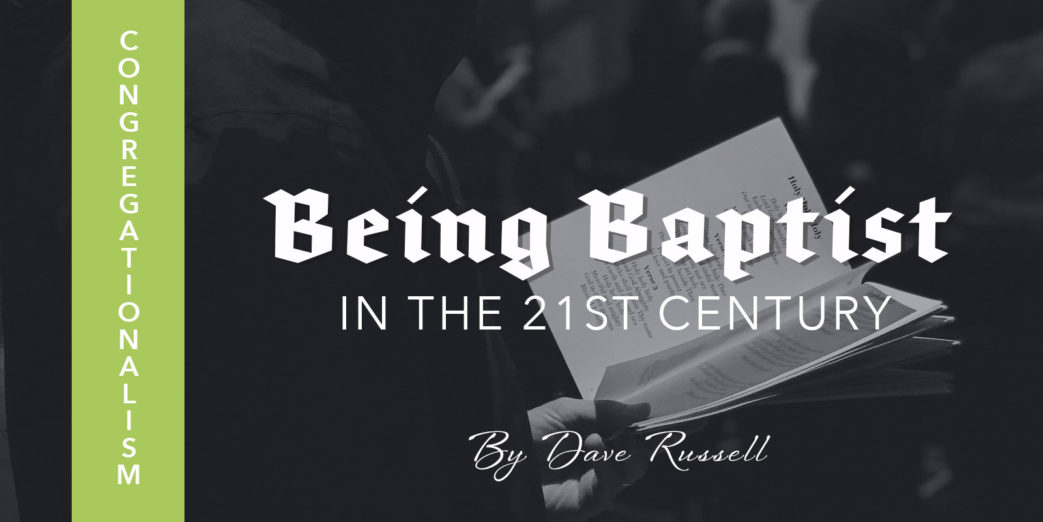By Dave Russell
B21 Podcast on Congregationalism with Dave Russell – Part I
“Do Baptist churches have any accountability?” This is a question I have been asked on a number of occasions by pastors who serve in other denominations. The Baptist distinctive of congregationalism answers this question. God has provided accountability for every local church through the congregation itself.
While local church autonomy tells us that a church is self-governing, congregationalism tells us who governs the local church. Congregationalism recognizes that the final human authority of a local church is the congregation itself. Local church autonomy and congregationalism go hand-in-hand because no person or group outside of the congregation is to exercise authority over the church concerning its faith and practice. In Scripture, we see the whole congregation serving as the final court of authority in matters of dispute, discipline, and doctrine.
Dispute – Matthew 18:15-17
Jesus gives special authority to the local church to govern itself. If a matter of dispute can’t be resolved privately or in a small group, the gathered assembly of the church is to be the final court. The final step for resolving a dispute in the church is to “tell it to the church” (Matt. 18:17).
Discipline – 1 Corinthians 5:1-5
In matters of church discipline, the congregation is the final court of authority. When a member of the church in Corinth is living in unrepentant, scandalous sin, the gathered assembly is to take disciplinary action. Paul does not appeal to the elders or use his apostolic authority; he instructs the congregation to use their authority to remove the member from their church when they are assembled (1Cor. 5:4). Affirming credible professions of faith is the responsibility of the congregation, whether adding or removing members.
Doctrine – Galatians 1:6-9
When false teachers are teaching a gospel other than the gospel of Christ, Paul tells the congregation to protect the doctrine of the church. The congregation has a responsibility to remove false teachers—even if the false teachers are their church leaders. Paul does not write to just the elders; he instructs the whole congregation to judge false teaching. Paul explains the seriousness of false teaching when he says that “even if we or an angel from heaven should preach to you a gospel contrary to the one we preached to you, let him be accursed” (Gal. 1:8). The congregation has the final authority and responsibility for the doctrine of the church.
How does a congregation exercise authority?
When it comes to matters of discipline, doctrine, and dispute, there is a Biblical precedent for voting. In 2 Corinthians 2:6-7, Paul refers to an individual that was disciplined and received a “punishment by the majority.” In Acts 6:2-6, the church gathered to select men from their membership to care for the members’ physical needs.
Voting is not unique to Baptists. Although many denominations vote, it is distinct that votes are congregational in Baptist churches. Baptist churches vote on the acceptance or removal of members, changes to their statement of faith, and who they call to be their pastor. Beyond the scope of matters concerning dispute, discipline, and doctrine, congregations should use prudence on what matters require a vote. Voting on the color of the foyer carpet is pretty far removed from these categories, so there would be no reason to have a congregation decide this. However, a matter like the annual budget has such an impact on the church’s ministry that it seems wise to have the whole congregation affirm how a church will spend its money.
What about Pastors?
Pastors play a critical role in the life of a church (1 Tim. 3:1-7). The Bible points to these men as shepherds who will teach God’s Word, provide care, and be an example of godliness. Congregations should care well for their pastors (1 Tim. 5:17) and submit to them (Heb. 13:17) as those who keep watch over their souls.
Pastors must lead without taking away the responsibilities that the Bible gives explicitly to the congregation in matters of dispute, discipline, and doctrine. Congregations may, however, decide that their pastors handle some matters. For example, leaders may be entrusted to hire administrative staff apart from congregational approval, while the hiring of pastors would finally require the affirmation of the congregation. A healthy practice of congregationalism involves pastors leading the way and guiding the congregation in decisions they must make.
Conclusion
To answer the question of what accountability Baptist churches have, we must understand the standards that God has given us in Scripture. God has ordained in His Word that the congregation is the final human authority of a local church. The congregation is the very mechanism that God has designed to hold the church accountable in doctrine and practice.

